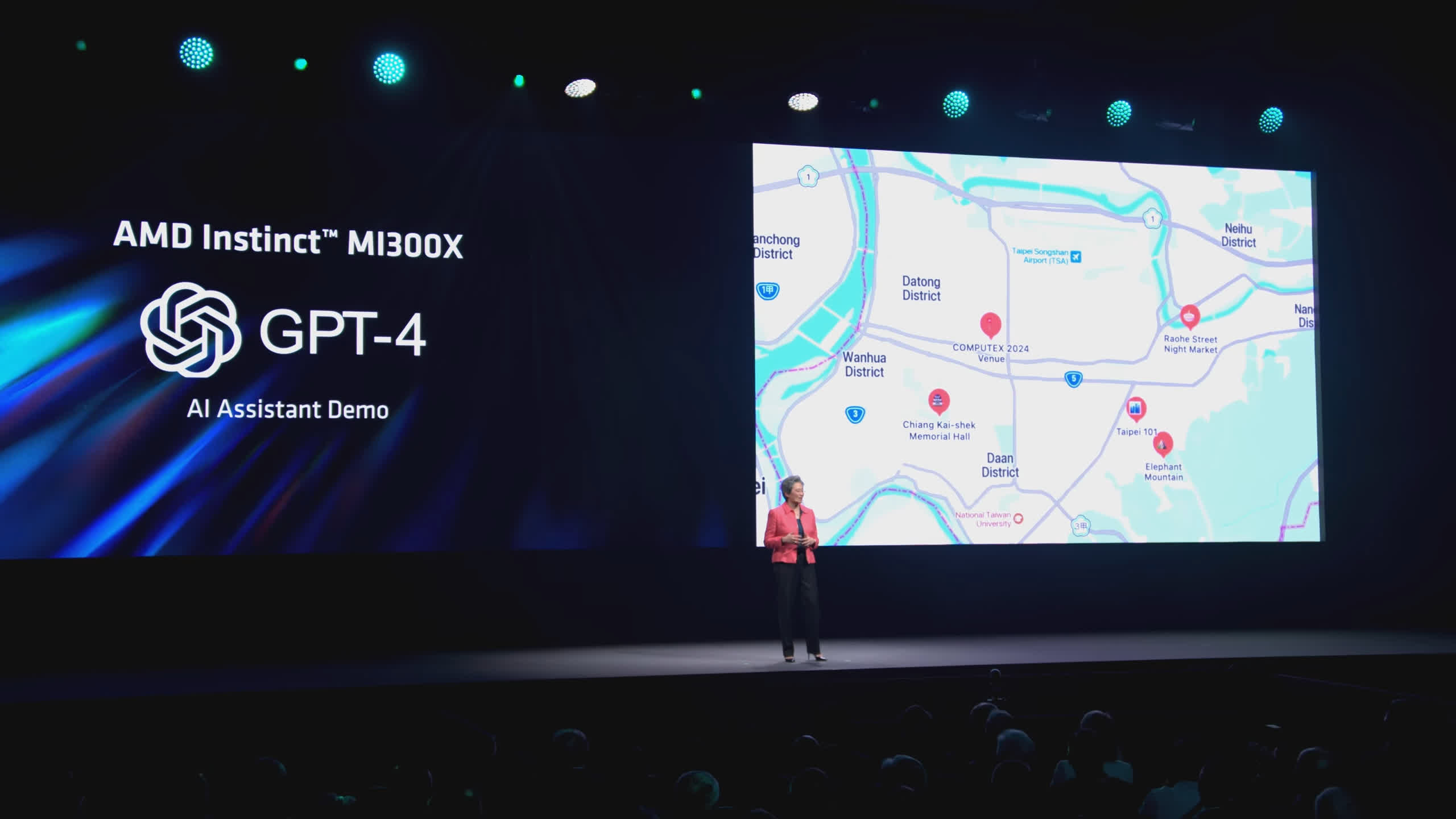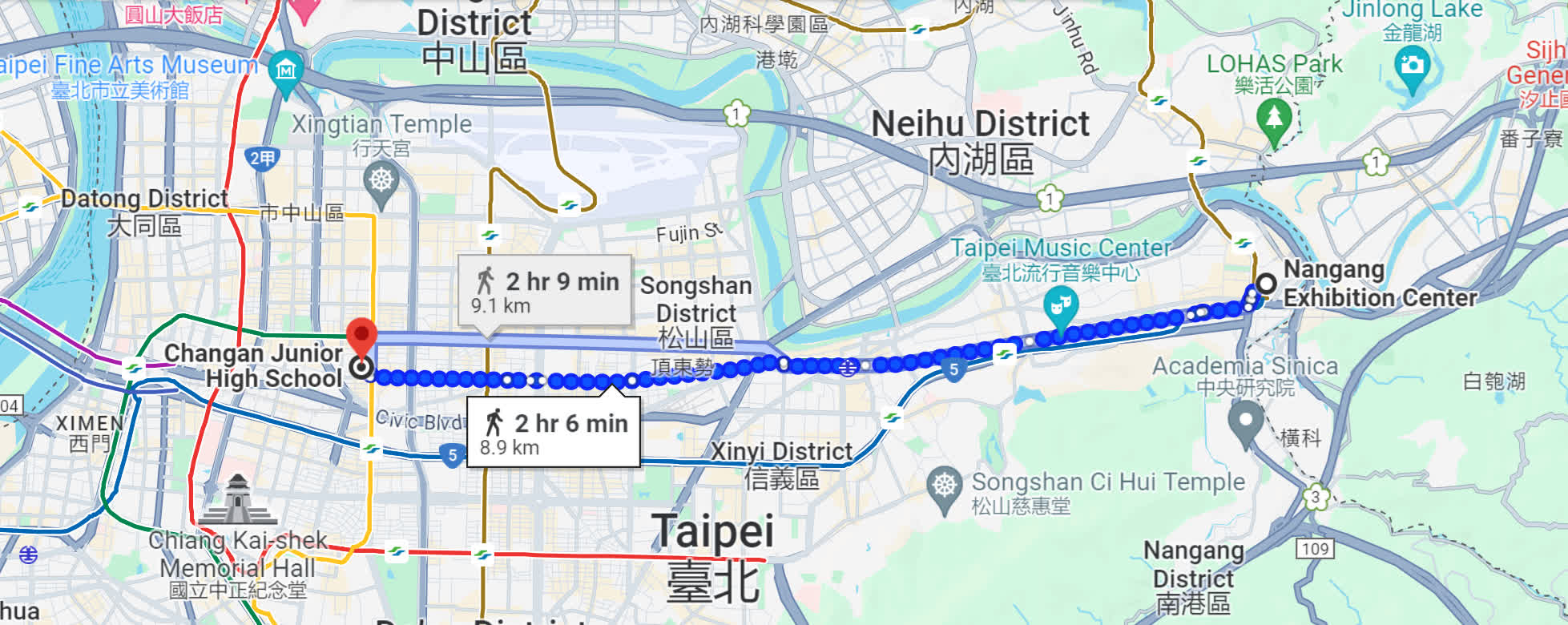Rumor mill: For all that Microsoft, Intel, AMD, Qualcomm, and pretty much every other tech company out there claims that AI is revolutionary, it still gets some pretty basic things wrong. AMD, for example, saw an AI at its Computex demo claim the event’s location was in a high school.
AMD CEO Dr. Lisa Su spent some of the company’s keynote speech at Computex talking about how its Radeon Instinct MI300X graphics cards pair well with OpenAI’s new tools, writes PC Gamer.
Su showed off a travel assistant built on GPT-4 called Wanderlust. As Computex takes place in Taipei, Taiwan, the demo was focused on the city. Unfortunately, the AI didn’t seem to know precisely where the event was being held (around 1:10:45 in the video).

Wanderlust believed Computex was on the opposite side of the Taiwanese capital. PC Gamer’s Dave James notes that it wasn’t even pointing at the event’s old location, but at the at the Changan Junior High School.
It could be that Wanderlust was highlighting the entire city of Taipei as the event location, though that’s not exactly helpful as it is specifically held at Nangang International Exhibition Center. Also, the point moves to a specific area as the person running the demo zooms into the map.
The demo moved pretty fast – Su doesn’t even seem to notice the snafu – but it’s just another example of how AI, for all its advancements, can still get things wrong. Sending a load of tech fans into a high school isn’t going to paint AI in a positive light.

The incident isn’t going to receive as much attention as the recent Google AI Overviews fails, in which the search engine suggested users eat rocks, put glue on pizza to help the cheese stick, and more hilarious, if potentially dangerous, advice. Google said the issue was due to people asking nonsensical questions to produce erroneous results, lack of solid information, and the AI’s inability to detect sarcasm and satire; an article from the satirical website The Onion was behind the rock-eating suggestion. Google also claimed many of the screenshots posted online were fake – another example of it blaming everyone but itself.

